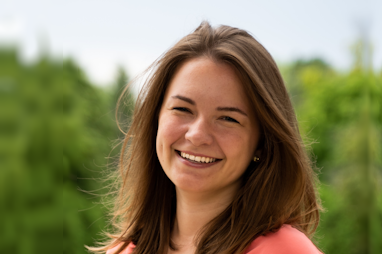Two lectures as part of the mentoring visit by Dr. Zuzanna Fuchs, University of Southern California

16 11 2023
Category: Events, I.1.1/IV.1.1
The Faculty of Psychology cordially invites you to two lectures as part of the mentoring visit by Dr. Zuzanna Fuchs, Assistant Professor of Linguistics at the University of Southern California and the director of the Psycholinguistics of Monolingualism and Multilingualism Laboratory (PoMMLab), USC.
A lecture entitled “A unique profile of bilingual acquisition: The case for heritage speakers” will take place on 21.11.2023, 15:15 – 16:00, in Auditorium of the Faculty of Psychology, Stawki 5/7.
Abstract:
An increasing portion of the world’s population fits in the category of “heritage speakers” — those who learn their home (heritage) language from their immediate family, but predominantly speak a different language outside of the home. This talk will discuss how this profile of bilingual acquisition is both interesting in its own right and can be leveraged to offer exciting insights into the interplay of proficiency, the age of onset of bilingualism, and the nature of the acquisition process in determining certain linguistic skills in adulthood.
A lecture entitled “Polish agreement morphemes: how animacy and grammatical gender interact during language processing” will take place on 22.11.2023, 16:00 – 17:30, in Room 98, Faculty of Psychology, Stawki 5/7.
Abstract:
This study investigates how noun category information is processed during language comprehension when a portmanteau morpheme realizes agreement in more than one noun-category feature – in this case, grammatical gender and animacy. In Polish, masculine nouns determine different agreement morphology in the accusative singular depending on whether the head noun is animate (adjectival suffix -ego) or inanimate (adjectival suffix -y). In a study on facilitative use of agreement marking in the Visual World Paradigm incorporating the Covered Box Paradigm, results show that when participants encounter a prenominal adjective inflected for accusative masculine animate (ex. zielon-ego), looks to the masculine animate target are reduced in the presence of competitors that are partial feature matches: feminine animate or masculine inanimate. Similarly, when participants encounter a prenominal adjective inflected for accusative masculine inanimate (ex. zielon-y), looks to the masculine inanimate target are reduced in the presence of a feminine inanimate competitor. This indicates that the Polish mental lexicon consists of both abstract gender category nodes and semantic animacy category nodes. Moreover, the results suggest that, during language comprehension, encountering portmanteau morphology that indexes agreement in both features independently activates these gender and animacy category nodes, spreading pre-activation to all connected lexical items.
Mentor visit under the Action I.1.1/IV.1.1 “Mentoring Programme” within “Excellence Initiative – Research University” at the invitation of the team of the Department of Cognitive Psychology and Neurocognitive Science of the Faculty of Psychology, University of Warsaw.
Both lectures will be conducted in English.